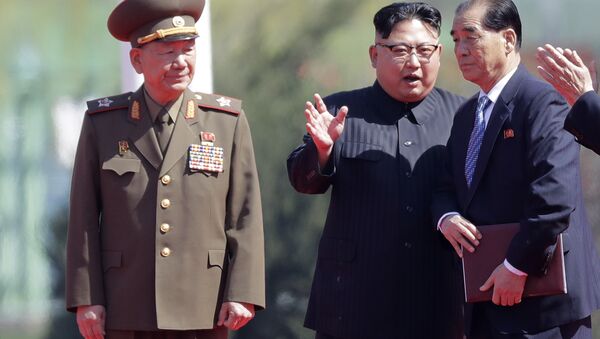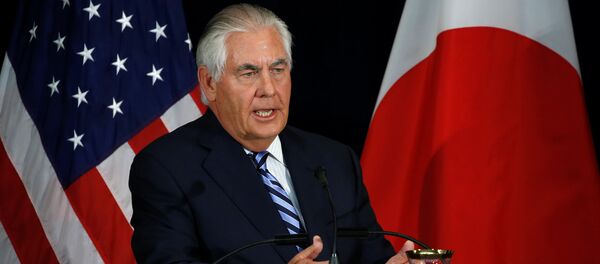The 72-year-old General Hwang Pyong-so has often been a fixture at Kim's side, and in one notable case even took his place: during the closing ceremony of the 2014 Asian Games.
But nobody has heard from Hwang since October — and now South Korean newspaper JoonAng Ilbo has reported that both Hwang and his deputy were exiled from the party for "impure behavior" — which is taken by the newspaper as a euphemism for accepting bribes and kickbacks.
"If Hwang was indeed kicked out of the Workers' Party, it would practically mean the end of his political career, and possibly his life, though it is unknown whether or not he is still alive," the newspaper reported.
Since September 2014 Hwang has served as the vice chairman of the National Defense Commission (NDC), the organ of the North Korean government that controls the military. The chairman, and thus arguably the most powerful person in the government, is Kim Jong-un.
Hwang has also held the office of director of the General Political Bureau of the Workers' Party of Korea (KPA) since 2014, generally seen as the third-most important office in the North Korean government after the positions of KPA chairman (held by Kim) and KPA presidium president (held by Kim Yong-nam, no blood relation to Jong-un.)
Reuters reported in November that Hwang faced "punishment," but was unable to confirm what sort of punishment or for what reason. They also reported that South Korean intelligence told them that Hwang had fallen from grace as a result of Choe Ryong Hae, president of the presidium and Kim's right-hand man.
Analysts have argued that Choe and Hwang have been rivals for Kim's ear: Choe preceded Hwang in the position of NDC vice chairman during a period in 2014 where he was on the outs with Kim. But since 2014, Choe has become more and more powerful, now arguably second only to Kim himself.
Information on the inner workings of the North Korean government is often very scant and relies on foreign intelligence reports. As such, Hwang's fate is unknown, including whether or not he's still alive.
Earlier in December, Kim Jong-un visited Mount Paektu, a holy site in traditional Korean culture and a symbol of North Korea, as the mountain falls deep within their territory since the 1953 partitioning of the peninsula.
Analysts have noted that, like his father Kim Jong-il before him, Kim often visits the mountain before making important policy decisions. For instance, he visited it in 2013 just before ordering the execution of Jang Song-thaek, his uncle and vice chairman of the Workers' Party's Central Military Commission — distinct from the NDC but also led by Kim.
Several other officials, such as Deputy Security Minister of Public Security O Sang-hon, were also executed for their loyalty to Jang.
If Hwang was executed, it may have been in a gruesome and inventive fashion. O Sang-hon, for instance, was reportedly executed via flamethrower according to Chosun Ilbo. South Korean intelligence reports that other executions were allegedly carried out via anti-aircraft gun and a pack of ravenous dogs.





